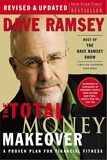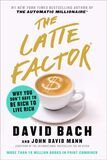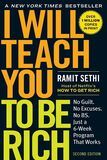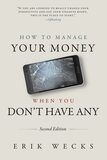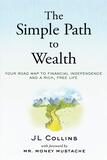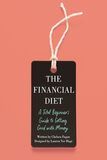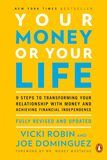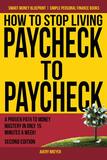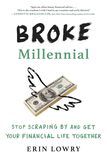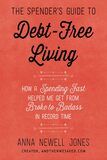Top 10 Budgeting Books [2025]
Budgeting has been one of the most effective financial practices. It entails splitting funds into bills, utilities, entertainment, and other necessities. In other words, it reflects the concept of establishing a financial management strategy. A budget is a spending plan that allows a person to create a roadmap for their money to follow and go where they want it to go. Budgeting is nothing more than tailoring one’s expenses and income. The best approach to master this concept is read through some of the best budget books.
Here is the list of Top 10 Best Budgeting Books that you must read -
- The Total Money Makeover: A Proven Plan for Financial Fitness ( Get this book )
- The Latte Factor: Why You Don’t Have to Be Rich to Live Rich ( Get this book )
- I Will Teach You to Be Rich: No Guilt. No Excuses. No BS. Just a 6-Week Program That Works ( Get this book )
- How To Manage Your Money When You Don’t Have Any ( Get this book )
- The Simple Path To Wealth: Your Road Map To Financial Independence And A Rich, Free Life ( Get this book )
- The Financial Diet: A Total Beginner’s Guide to Getting Good with Money ( Get this book )
- Your Money Or Your Life: 9 Steps to Transforming Your Relationship with Money and Achieving Financial Independence ( Get this book )
- How To Stop Living Paycheck To Paycheck: A Proven Path To money Mastery In Only 15 Minutes A Week! ( Get this book )
- Broke Millennial: Stop Scraping By And Get Your Financial Life Together ( Get this book )
- The Spender’s Guide To Debt-Free Living: How A Spending Fast Helped Me Get From Broke To Badass In Record Time ( Get this book )
Let's explore each of these best financial budgeting books and try to learn some key lessons from them -
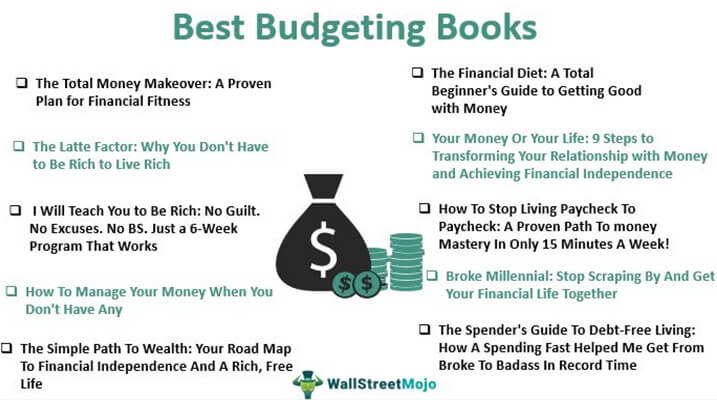
#1 - The Total Money Makeover
A Proven Plan for Financial Fitness
By Dave Ramsey
The book originally came out in 2003, in which the author talks about how people first of all have to debunk the myths of money and the life they are living. Then, he uses statistics to support his argument about how people can overcome it.
Book Review
The book points out how most American citizens live poor financial life. Approximately 90% of college students have education loans. A huge percentage of American citizens do not pay off their monthly credit card bills, and 49% of American families only have enough savings to last less than a month if snatched from their monthly income. In addition, the author points out that people live in ignorance and denial of their financial position.
Key Takeaways
- The book talks about the importance of an emergency fund.
- It encourages readers to get rid of their loans and bad debts slowly (debt snowball).
- The book has a 7 step financial plan, from starting a mini emergency fund to creating a retirement fund with proper planning.
- The author highlights how most people do not take responsibility for their finances and points out the key issues.
#2 - The Latte Factor
Why You Don't Have To Be Rich To Live Rich
By David Bach and John David Mann
The book revolves around the idea that an individual is not broke if they can afford their morning latte (coffee). Instead, by just inducing new habits, people can transform their financial life and realize their dreams of becoming wealthy.
Book Review
Author David Bach starts the book with a small story where he comes across a woman with her coffee. She does not have enough money, so he advised her that if only she skipped her morning latte, she would be saving $5 a day, which would eventually become $11000 in five years and a lot more in a few decades (through investing). So, the book talks about investing small amounts slowly and letting time do its job. That is why the book is named the "Latte Factor."
Key Takeaways
- The book speaks about how one can afford what they want depending on how they manage their small expenses.
- The book induces readers with a rich mindset and debunks the myths of a poor lifestyle.
- ‘Start paying yourself first,’ that is one of the key principles of creating wealth.
- The author wants everyone to keep aside a certain amount of money to invest.
#3 - I Will Teach You to Be Rich
No Guilt. No Excuses. No BS. Just a 6-Week Program That Works
By Ramit Sethi
Ramit Sethi, the book's author, says that getting started is more important than becoming a financial expert. The book discusses the general idea where the author motivates people to start investing today even if they have $1. The most important aspect here is to begin.
Book Review
The book sheds light on how people never really accept that they are bad with their finances, always give excuses, and do nothing to change that. The author suggests that investing is hard, and one may lose some money, but it is important to lose it today than tomorrow. So, without any more delay, people should invest as soon as possible with as little money as they have to use the power of time.
Key Takeaways
- Ramit says the first step towards becoming rich is starting to take responsibility.
- The author also states that people ignore the power of compounding.
- The book holds much resembles "Rich Dad Poor Dad."
- It is one of the best personal budgeting books for new readers.
#4 - How To Manage Your Money When You Don't Have Any
By Erik Wecks
The book was originally released in 2012 and emphasized budgeting expenses. However, the author has filled it with many daily life experiences to make it easier to understand.
Book Review
The book is a guide for long-term wealth creation. The author has written the book to question the reader's ideology. Unlike other financial books, this book is a quick read, making it one of the best personal budgeting books for people stuck with their finances. In addition, the book highlights that people who use debt later find themselves in a never-ending cycle of interest payments and installments.
Key Takeaways
- Specifically written for American citizens.
- Throws light on the modern economy and has a straightforward approach to talking to the reader.
- The author says people who try to look wealthy damage their financial status in the long run.
#5 - The Simple Path To Wealth
Your Road Map to Financial Independence and a Rich, Free Life
By J. L. Collins
The book is one of its kind. Though one may find many commonalities between several budgeting books, J. L. Collins has a different financial planning and management approach.
Book Review
One of the key factors the book talks about is the risk with savings and investment. The author says that no investment is risk-free, and the moment an individual starts savings and invests money, there will always be a risk of losing money or coming across a heavy expense. The book's central idea is that since money is one of the most powerful tools, understanding it is critical, and nothing should intimidate people.
Key Takeaways
- The author admonishes avoiding debts at any cost.
- He asks people to try and invest in index funds.
- The book advises that there is no limit a stock or asset can go upwards.
#6 - The Financial Diet
A Total Beginner's Guide To Getting Good With Money
By Chelsea Fagan and Lauren Hage
The book was released in 2018, and it has a new perspective towards habits and routine of getting an individual's mindset towards the right way of spending money.
Book Review
Certain kinds of people do not care about their finances and regret later. This book is technically for them. However, common people are buried under student debt or desperately finding an entry-level job. The book helps them create a budget, understand investments, and deal with their credit. Chelsea Fagan tapped a range of experts and knows how important it is to become wise with money. The book talks about how people spend their money on clothes, food, unnecessary expenses, subscriptions, and whatnot.
Key Takeaways
- The book highlights the process of getting wise with money in one year.
- It is a budgeting book that also talks about becoming financially responsible.
- The book encourages people to invest and helps them learn its basics.
- It teaches how to become budget-friendly.
#7 - Your Money Or Your Life
9 Steps To Transforming Your Relationship With Money And Achieving Financial Independence
By Vicki Robin and Joe Dominguez
The book was published in 1992, and the book still is one of the best personal budgeting books. The author inspires people to achieve financial independence.
Book Review
The book is written to help its readers transform their relationship with money. The book is not just any budgeting book but encompasses expenses, income, debts, and savings. In addition, the author wants its reader to understand how following simple steps can help them make the most of their relationship with money not just healthy but effective and enlightening. The book provides a blueprint to reach new comfort levels of financial stability, and it does not stop there but gives a new perspective towards life.
Key Takeaways
- The book deals with an individual's relationship with their money or income.
- It explains how money has its presence in every aspect of people's lives and the issues that come with it.
- The book talks about financial integrity, intelligence, and financial independence.
- The author gave 9 steps to achieve financial independence.
#8 - How To Stop Living Paycheck To Paycheck
A Proven Path To Money Mastery In Only 15 Minutes A Week!
By Avery Breyer
The author speaks about creating a monthly budget for people and strictly following it and tracking it to attain and maintain financial independence in the least possible time.
Book Review
The book is easy-to-understand and gives a detailed picture of how to control the spending urges, what is recommended, and what is a mere expense that can be avoided for the longest time. The book does not make one frugal but helps create a budget to live happily in. That makes it one of the best budgeting books for people wanting to get out of the financial pit. The book focuses on budgeting and is a good self-help book.
Key Takeaways
- As the title suggests, it is based on budgeting practices given 15 minutes a week.
- The book identifies that it is not the low income but people's spending habits that get them into trouble.
- The author's writing is fresh and easy for readers to follow.
- She discusses the use of credit cards and other forms of debt.
#9 - Broke Millennial
Stop Scraping By And Get Your Financial Life Together
By Erin Lowry
The book asks certain questions and says that their answer represents one's relationship with money and future goals.
Book Review
The author talks about people's deeper problems and issues with money management. She says that even when people do not remember it, the problem with budgeting and understanding the concept of money goes way back to their childhood, for example, how they conceived the idea of money, how they got money, how they spent it, and such other questions. The author believes that if one is good with finance, they shall pay their debts on time, and it will help them grow a good credit score.
Key Takeaways
- The book highlights the long-term relationship and identifies future roadblocks before getting there and preparing for it.
- It helps determine how much one needs to live and how much one can save percentage-wise.
- Contrary to popular belief, the book suggests that credit cards are a valuable tool that one can use to make bigger purchases.
#10 - The Spender's Guide To Debt-Free Living
How a Spending Fast Helped Me Get from Broke to Badass in Record Time
By Anna Newell Jones
The book came in 2016, and the author has been interviewed in Forbes, Self, Glamour, Good Housekeeping, and the Chicago Tribune.
Book Review
The author shares her story about how in 2009, when she was a young photographer suffocated under too much debt to approx. $24,000 and how things were declining with each passing day. The day she decided spend fast, she learned about it and astonishingly eliminated around $23,605.10 of her debt in only 15 months. The author's journey has inspired many people and works as a live example of how people can still make the best out of their financing habits.
Key Takeaways
- The book contains steps for its readers to create a personalized debt-free life pledge.
- It ensures more ways of generating income and not relying on only one.
- The book comprises many do-it-yourself ideas and expert insights.
